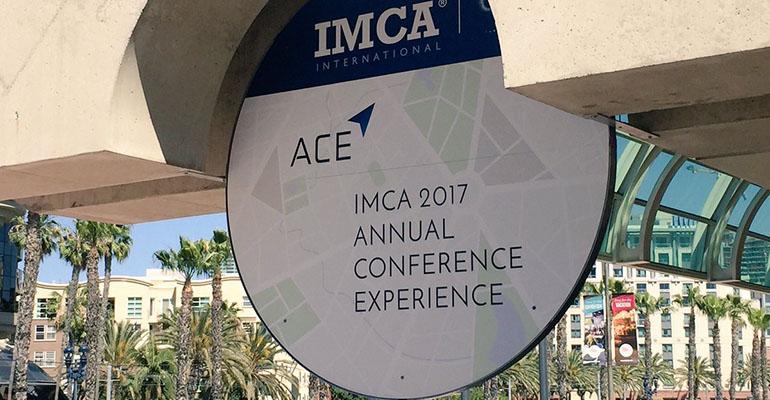Advisors must stop complaining and meet millennials on their own terms to remain relevant.
During his presentation, “The Millennial Mindset” at the 2017 IMCA ACE conference experience, Professor Nathaniel Harness of Texas A&M University stressed the urgency of the need for advisors to reach out to millennial clients and offered some insight into just how they can accomplish that seemingly impossible feat.
He maintains that advisors need to apply the same principles of diversification to their client lists as they do to their clients’ portfolios. “The average client (64 years old) is 10 years older than the average advisor (54 years old), and 25 percent of clients are over age 70,” he notes.
What these numbers indicate is that the average advisor’s client base is heavily overweight in either retired or soon-to-be retired individuals. These clients are largely approaching or in the decumulation phase; so while they may be steady sources of business, there isn’t much room for growth. Younger clients, in different phases of their financial lives, although more volatile, are essential in balancing out a book of business and improving overall performance.
According to Harness, advisors have grown comfortable in this paradigm and their business models show it. “What we focus on currently is asset management.” he explains. “Not so much what you need to get there, but more what you need when you’re already there.” This is an acceptable approach for servicing older clients, but often actively discourages younger ones, as advisors seem to be ignoring the aspects that actually apply to young people.
“We have an issue with helping an entire generation understand what we do,” he says.
Many advisors bemoan millennial’s overuse of smartphones, the internet and social media, and they aren’t necessarily wrong about that. Harness notes that millennials spend 95 percent of their days within five feet of a smartphone. However, he believes that advisors should be happy about this development. As millennials hunger for information and share information about themselves and what they like online, advisors are given the roadmap on how to reach them.
Harness maintains that millennials seek out and share advice on a unprecedented scale. They’ve grown up with an unfathomable amount of information instantly available to them, so they love to do research before they make decisions. The popularity of FAQs and consumer reviews mean that this generation has easy access to a feedback loop on just about any good or service. “Content created by other users is a key factor in millennial purchasing decisions,” he notes. Advisors need to figure out where they fit in this world and how to take advantage of it, because their services are being evaluated on sites like Yelp whether they like it or not. It’s time to steer into the curve.
Millennials are more willing to pay for experiences than any previous generation and often value them more than hard assets. Apple and Nike are consistently the two most popular brands among millennials, both of which emphasize culture and experience over functionality. Do advisor practices reflect that at all? Harness encourages advisors to step into their clients’ shoes and think about what a trip to the advisor's office means to them. Do you offer a holistic experience or just push the most appropriate program or product for the client? For many clients, he anticipates, it won’t be all that different than a trip to the dentist. Not exactly a comparison you want made when it comes to online reviews.
“Have we properly articulated to our clients the value that we bring so that they can share it with others?” he wonders.
The language advisors use is another great place to look. Millennials searching for financial information will use search terms that are in their common vernacular. So, while many advisors are tempted to fill their websites with technical terms and insider language in order to attract “smart clients,” they’re not even popping up on millennial radars because none of those technical terms are commonly searched. Harness explains “We think that [millennials] think the same way and use the same language that we do. They don’t. We have to use their words, not ours to register when they search for advice.”
Ultimately, Harness believes that advisors must be willing to meet clients on their own terms in order to stay in the changing game.
“Our value add is shifting quickly from access to advice, and our engagement with technology must reflect this reality.”





